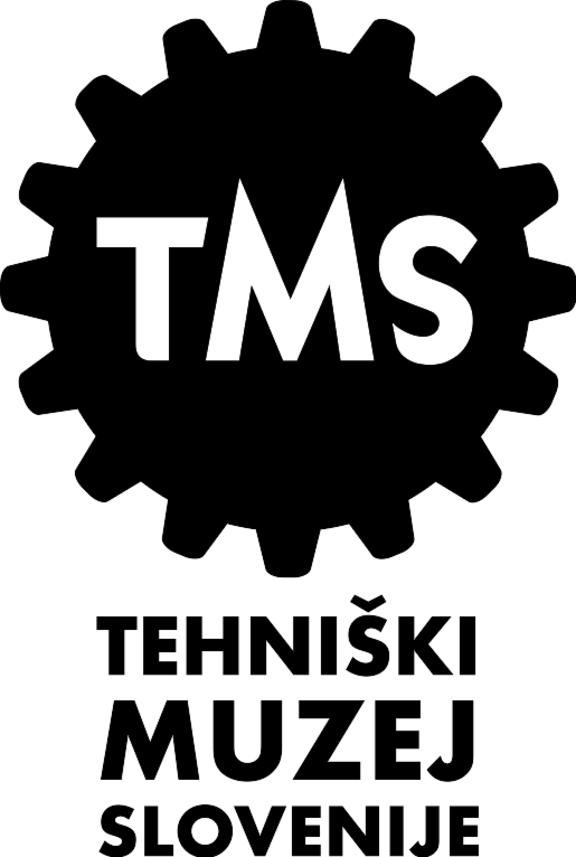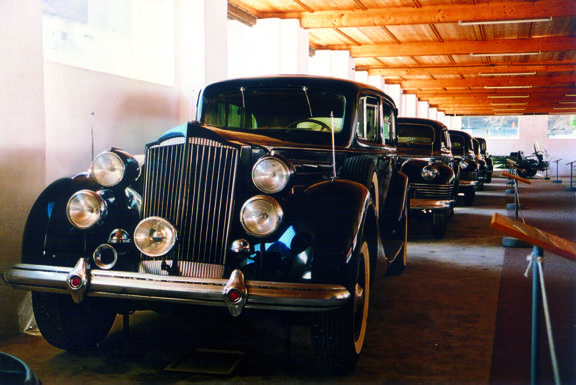Difference between revisions of "Technical Museum of Slovenia"
Janez Premk (talk | contribs) |
Janez Premk (talk | contribs) |
||
| Line 28: | Line 28: | ||
=== Collections === | === Collections === | ||
| − | |||
Today the Technical Museum incorporates numerous Departments. The '''Forestry and Woodworking Department''' originated as the ''Forestry Institute Collection'' and is displayed in a 300 square metre exhibition area. The ''' Hunting Museum Collection''' also originated in 1947 and now occupies a 700 square metre exhibition area equipped with computer-supported multimedia as well as film and sound recordings. The '''Fishing Department''', opened in 1982, incorporates an ecology section. The''' Transportation Department''' occupies the largest exhibition area of about 2,500 square metres, and includes Slovene road vehicles (the oldest from the pre-war period), a collection of prestigious presidential limousines, a collection of automobiles on long-term loan from the German Technical Museum in Berlin and Slovene motorcycles from the ''Tomos of Koper'' collection. The '''Textile Department''' presents the history of spinning and weaving and the machine production of fabrics and organises workshops in weaving, sewing and painting on silk and cotton. The '''Department of Agricultural Machinery Collection''', housed in a 1,500 square metre outbuilding, includes a wheelwright's workshop, a farrier's workshop and an exhibition on the history of the mill. Demonstrations of smithing, corn grinding in the mill and bread baking are regularly organised here. | Today the Technical Museum incorporates numerous Departments. The '''Forestry and Woodworking Department''' originated as the ''Forestry Institute Collection'' and is displayed in a 300 square metre exhibition area. The ''' Hunting Museum Collection''' also originated in 1947 and now occupies a 700 square metre exhibition area equipped with computer-supported multimedia as well as film and sound recordings. The '''Fishing Department''', opened in 1982, incorporates an ecology section. The''' Transportation Department''' occupies the largest exhibition area of about 2,500 square metres, and includes Slovene road vehicles (the oldest from the pre-war period), a collection of prestigious presidential limousines, a collection of automobiles on long-term loan from the German Technical Museum in Berlin and Slovene motorcycles from the ''Tomos of Koper'' collection. The '''Textile Department''' presents the history of spinning and weaving and the machine production of fabrics and organises workshops in weaving, sewing and painting on silk and cotton. The '''Department of Agricultural Machinery Collection''', housed in a 1,500 square metre outbuilding, includes a wheelwright's workshop, a farrier's workshop and an exhibition on the history of the mill. Demonstrations of smithing, corn grinding in the mill and bread baking are regularly organised here. | ||
'''The collection of the Electric Machinery Department''' is displayed in three rooms with an exhibition area of about 370 square metres and presents the history of electrification in Slovenia. | '''The collection of the Electric Machinery Department''' is displayed in three rooms with an exhibition area of about 370 square metres and presents the history of electrification in Slovenia. | ||
| Line 46: | Line 45: | ||
*[http://www.tzs.si Tehnična založba Slovenije] | *[http://www.tzs.si Tehnična založba Slovenije] | ||
| − | |||
{{categories|government|national cultural institutions}} | {{categories|government|national cultural institutions}} | ||
[[Category:Museums]] | [[Category:Museums]] | ||
Revision as of 17:15, 25 January 2010
-
to
9 Oct 2018
31 Jan 2019
The exhibition Reaching for the Stars with Elan, curated by Vladimir Vilman and organised by the Technical Museum of Slovenia, supported by the Embassy of the Republic of Slovenia Zagreb,
-
to
25 Jan 2017
7 Apr 2017
-
to
15 Apr 2015
15 Jun 2015
An exhibition on the life and work of Janez Puhar, the inventor of the photographic plate, organised by Technical Museum of Slovenia, supported by the Embassy of the Republic of Slovenia Bratislava,
-
to
29 Jun 2013
9 Oct 2013
The exhibition The Man Who Propelled Vessels - Josef Ressel, co-organised by the Technical Museum of Slovenia
-
to
13 Dec 2012
31 Jan 2013
-
to
15 Dec 2011
31 Jan 2012
-
to
21 Sep 2011
30 Sep 2011
-
to
15 Oct 2010
5 Dec 2010
History
The Museum was established within the buildings of the former Bistra Carthusian Monastery, which had been managed since 1947 by the Forestry Institute of Slovenia and already housed its museum collections. Consequently when it opened in 1951 the Technical Museum of Slovenia focused on the Institute's forestry, woodworking and hunting collections. During its long history the museum has managed a number of collections which have since become independent institutions, including Kropa Iron Forging Museum, the Koroška Museum, Ravne na Koroškem, Idrija Municipal Museum and the Slovene Coal Mining Museum, Velenje.
Collections
Today the Technical Museum incorporates numerous Departments. The Forestry and Woodworking Department originated as the Forestry Institute Collection and is displayed in a 300 square metre exhibition area. The Hunting Museum Collection also originated in 1947 and now occupies a 700 square metre exhibition area equipped with computer-supported multimedia as well as film and sound recordings. The Fishing Department, opened in 1982, incorporates an ecology section. The Transportation Department occupies the largest exhibition area of about 2,500 square metres, and includes Slovene road vehicles (the oldest from the pre-war period), a collection of prestigious presidential limousines, a collection of automobiles on long-term loan from the German Technical Museum in Berlin and Slovene motorcycles from the Tomos of Koper collection. The Textile Department presents the history of spinning and weaving and the machine production of fabrics and organises workshops in weaving, sewing and painting on silk and cotton. The Department of Agricultural Machinery Collection, housed in a 1,500 square metre outbuilding, includes a wheelwright's workshop, a farrier's workshop and an exhibition on the history of the mill. Demonstrations of smithing, corn grinding in the mill and bread baking are regularly organised here. The collection of the Electric Machinery Department is displayed in three rooms with an exhibition area of about 370 square metres and presents the history of electrification in Slovenia.
Branches
The museum manages various satellites, including Bogenšperk Castle, Pantz Forester's Gravity Cableway, the Museum of Post and Telecommunications and the Soteska Depot of Vehicles.
See also
- Bogenšperk Castle
- Pantz Forester's Gravity Cableway
- Museum of Post and Telecommunications
- Soteska Depot of Vehicles




